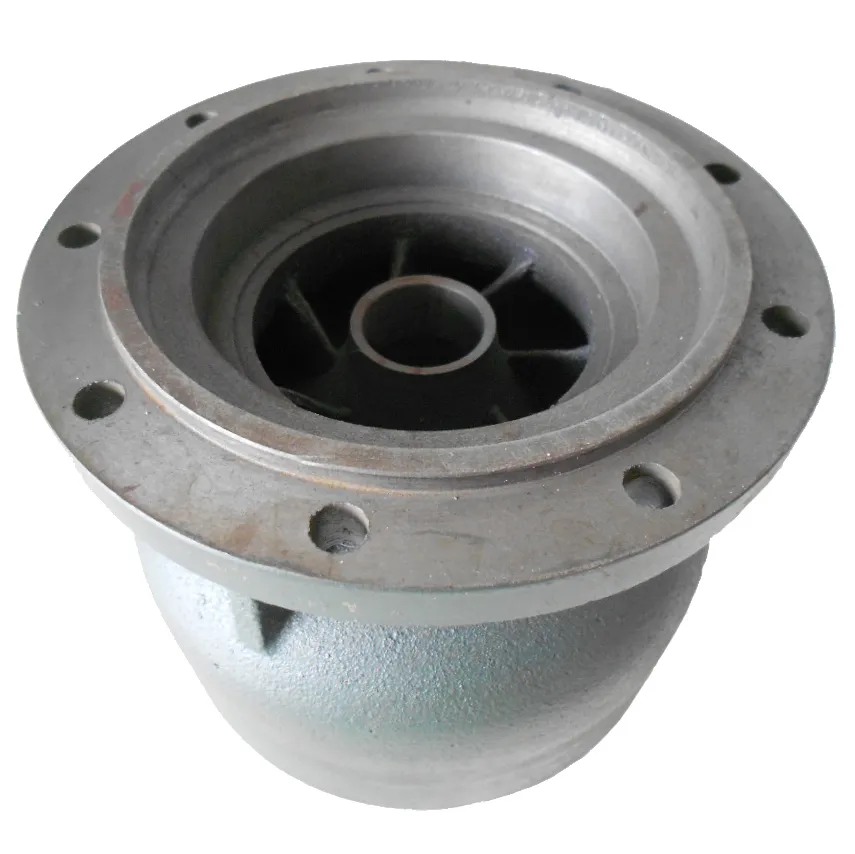Mobile:+86-311-808-126-83
Email:info@ydcastings.com
Exhaust Manifold Replacement Options for 2001 Volkswagen Jetta 2.0 and Performance Enhancements
Overview of the 2001 Jetta 2.0 Exhaust Manifold
The 2001 Volkswagen Jetta 2.0 is a compact car that has garnered a reputation for its reliability, affordability, and enjoyable driving characteristics. Central to its performance is the exhaust system, specifically the exhaust manifold. Understanding the function and importance of the exhaust manifold in the Jetta 2.0 provides insight into its engine performance and overall efficiency.
What is an Exhaust Manifold?
The exhaust manifold is a critical component of an engine's exhaust system. It is responsible for collecting exhaust gases from the engine cylinders and directing them into the exhaust system, where they are eventually expelled into the atmosphere. On the 2001 Jetta 2.0, the exhaust manifold is typically made from cast iron or stainless steel, materials that can withstand high temperatures and corrosive exhaust gases.
Functionality and Design
The design of the exhaust manifold is crucial for optimal engine performance. In the case of the Jetta 2.0, the manifold collects gases from the four-cylinder engine's combustion cycle. It features individual ports for each cylinder, allowing exhaust gases to flow efficiently into the manifold. This design minimizes back pressure, which can hinder engine performance and fuel efficiency.
The manifold also plays a role in determining how quickly exhaust gases exit the engine. A well-designed manifold improves exhaust flow, which can enhance engine breathing, improve throttle response, and increase overall power output. In contrast, a clogged or damaged exhaust manifold can lead to decreased performance, increased emissions, and potential engine damage.
Common Issues with the Exhaust Manifold
2001 jetta 2.0 exhaust manifold

While the exhaust manifold in the 2001 Jetta 2.0 is generally reliable, it is not immune to issues. Over time, exposure to heat and exhaust gases can lead to cracks or corrosion. A common problem with older models is the formation of leaks, which can occur at the joints where the manifold meets the engine or where it connects to the exhaust pipes. These leaks can cause a decrease in engine performance and an increase in noise, as unfiltered exhaust escapes before it can be processed by the catalytic converter.
Additionally, issues with the heat shield that protects the manifold can arise. If the heat shield becomes loose or corroded, it may vibrate and create noise or even detach entirely. This can expose other components to excessive heat and potentially lead to further mechanical issues.
Maintenance Tips
To ensure optimal performance of the Jetta 2.0's exhaust manifold, regular maintenance is essential. Drivers should be attentive to any unusual noises, such as hissing or popping sounds, which may indicate a leak. Regular inspections of the exhaust system during routine maintenance can help catch issues early.
If a problem is identified, it is crucial to address it promptly. Depending on the severity of the damage, a repair may involve tightening bolts, applying sealant, or replacing the entire manifold. Upgrading to a performance exhaust manifold is also an option for enthusiasts looking to enhance engine output and responsiveness.
Conclusion
The exhaust manifold is a vital component of the 2001 Volkswagen Jetta 2.0's performance. Understanding its function and potential issues can help owners maintain their vehicles effectively. Regular inspections and timely repairs will ensure that the exhaust system operates efficiently, contributing to the overall longevity and performance of this beloved compact car. By investing time and resources in maintaining the exhaust manifold, Jetta owners can enjoy the vehicle's performance for years to come.
-
Why Should You Invest in Superior Pump Castings for Your Equipment?NewsJun.09,2025
-
Unlock Performance Potential with Stainless Impellers and Aluminum End CapsNewsJun.09,2025
-
Revolutionize Your Machinery with Superior Cast Iron and Aluminum ComponentsNewsJun.09,2025
-
Revolutionize Fluid Dynamics with Premium Pump ComponentsNewsJun.09,2025
-
Optimizing Industrial Systems with Essential Valve ComponentsNewsJun.09,2025
-
Elevate Grid Efficiency with High-Precision Power CastingsNewsJun.09,2025











